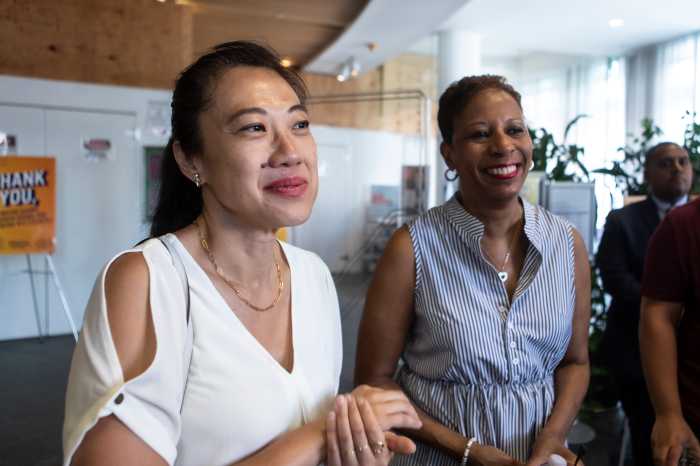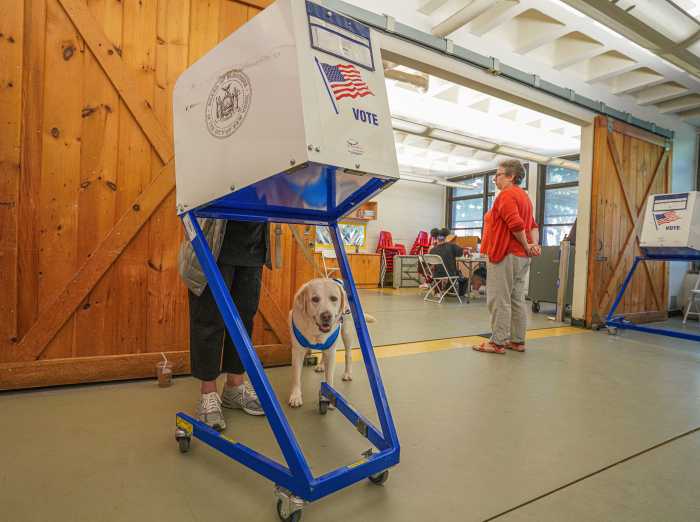By Bob Friedrich
Regrettably, it is not an understatement to point out that passage of the Fair Chance Act by the New York City Council has put families living in co‑op and other residential housing communities at risk. Our progressive Council, that just voted themselves a 35 percent increase in a year in which seniors saw a zero percent increase in their Social Security payments, are moving full speed ahead in a dangerously wrong direction with this law.
Civic leaders and co-op presidents like myself rank safety at the top of our list of concerns. At Glen Oaks Village and so many other residential housing communities, the hardworking maintenance departments keep buildings and infrastructure running smoothly and in good repair. These maintenance workers often must enter apartments, at times unsupervised, to check faulty plumbing, fix a cabinet, nail down a squeaky floorboard, or repair a malfunctioning window.
As a result of this access, maintenance employees are usually subject to criminal background checks prior to employment. Co-op boards see this as part of their due diligence and obligation to keep their communities safe. Ensuring that an individual with a criminal background will not have unsupervised access to your home or access to homes with small children or disabled elderly is something most people outside the Council would agree makes sense and is the right thing to do.
That has all changed now that the City Council has banned employers—including those that run and manage housing cooperatives and condominiums—from asking maintenance-worker applicants whether they have been convicted of a crime. Making such an inquiry prior to extending an offer of employment, or even questioning a prospective applicant who makes an unsolicited disclosure of a previous arrest record, is now a violation of the city’s Human Rights Law. Trying to protect communities by questioning prospective employees who are ex-felons and who will have access to homes is now off-limits. Law enforcement agencies are mercifully exempt from the Fair Chance Act, which is an obvious acknowledgement that the City Council realizes there is a reason for conducting a criminal background check—just not for ordinary folks, like us.
Under the FCA, an employer can only inquire about past criminal behavior and incarceration after an offer of employment is made. If the criminal background check comes back positive and the employer rescinds the job offer, the applicant can sue by going directly to the New York City Human Rights Commission. Under the law, the burden of proof shifts to the employer who must show that its actions to rescind the job offer were “justified”—a legal bar that is almost impossible to reach and a field day for lawyers. Employers must hold the position open and provide the applicant with at least three days or more to respond. If the applicant disagrees with the employer’s decision, the Human Rights Commission will take legal action against the employer. Once again, we have a law that is a nightmare for co-ops and other housing units that are simply seeking to keep their communities and families safe.
The absurd level of micromanagement injected by the FCA into the employment process is stunning: Using an application form that allows a prospective employee to grant permission for a background check is a violation of the law, as is an application form containing a disclaimer that the applicant does not have to answer specific questions about prior criminal conduct. The law even prohibits employers who have learned about an applicant’s past criminal history from altering the duties and responsibilities of the position. An employer would be in violation of the law if the duties of the position were altered to prohibit this individual from unsupervised home entry. This law has put law-abiding citizens at risk. It creates a new protected class of criminals and creates criminals out of job-creating employers.
And to make matters worse, in a companion bill the City Council enacted, employers are prohibited from using consumer credit history reports in the employment process. Employers often rely upon credit checks, FICO scores, payment histories, bankruptcies or judgments as a tool to assess a potential employee’s trustworthiness, honesty and good judgment. All of these checks are no longer permitted by law.
The Credit Check Law and Fair Chance Act eliminates any “Fair Chance” for employers and families worried about safety in a dangerous world. Once again, social engineering has supplanted common sense and has put us all at risk. Fair Chance? Fat Chance.
Bob Friedrich is President of Glen Oaks Village and a civic leader.





































